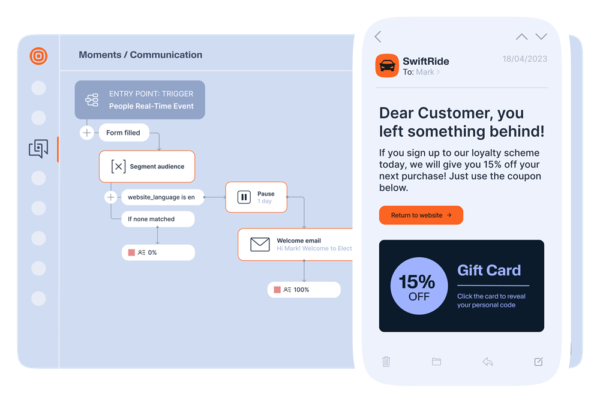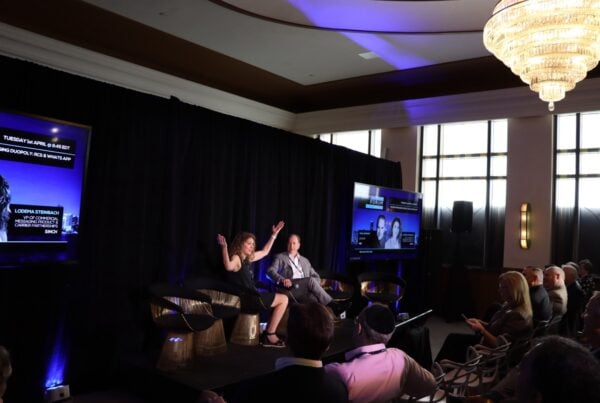MEF member Gemalto shares the findings of its new survey, revealing the key success factors to be met by mobile operators and brands in Nigeria to maximize user engagement for mobile marketing campaigns.
Has the mobile advertising era finally reached Nigeria? As a matter of fact, 2017 will see mobile advertising spending exceed desktop ad spending for the first time. And by 2019 spending on mobile will represent 64% of all Internet advertising spending in the country.
But creating the ideal ecosystem for mobile marketing in a given country requires patience and perseverance.

It’s particularly crucial to understand end-users’ expectations in terms of mobile marketing: indeed our survey* reveals the key success factors to be met by mobile operators and brands to ensure the maximum user engagement in Nigeria for mobile marketing campaigns. Trust is a barrier for definitive massive adoption of mobile advertising in Nigeria. But there are key reasons to hope for a close bright future.
79% of respondents in Nigeria are annoyed at receiving messages from senders they have NOT given their permission to. Mobile is a very personal channel, so you definitely have to make your customers feel at ease by asking their permission first. Indeed, efficient opt-in and opt-out management are a must for 83% and 81% of the votes respectively. Said differently, when not respecting these pre-requisites, there’s a serious risk of damaging brands’ and operators’ reputations.
-
Make the message relevant.
65% of respondents consider that messages they receive are NOT in line with their area of interest. It’s common sense to say that non-relevant messages are counterproductive, as people believe their expectations are not being taken into consideration. 86% of respondents want the mobile messages to be in line with their tastes and concerns. 85% of the audience even wish to benefit from specific offers. Make them feel like VIPs by designing tailor-made offers truly corresponding to what they like, and/or the services they’ve already bought before. Analytics are of precious help here.
-
Incentivize them through immediate and tangible rewards.
The survey reveals that customers are more willing to engage with the brand if the message they receive offers a tangible reward: immediate discount and a gift from the brand are the most preferable ones (55% each).
Acceptance rates of 10% can be achieved in Nigeria via interactive, permission-based mobile marketing messages”
-
Carefully monitor the contact frequency pressure.
Managing marketing pressure is key for end-users not willing to be spammed and swamped. Even if end-users give you permission, and if the messages are relevant, the operator and/or the brand have to respect the maximum frequency tolerated for receiving marketing messages on their mobile. 48% of the 18+ year-old adults interviewed agree to receive between 1 and 3 messages per week. And the favorite moment to receive a marketing message is the evening for 52% of respondents. These insights maximize your campaign’s acceptance rates when applied properly.
-
Provide them with an intuitive click-through experience.
Service usability is instrumental to the overall acceptance of mobile marketing campaigns. It’s even truer in Nigeria: 81% of respondents wish to get a quick access to information or promotion. Therefore informative SMS is not perceived as the best tool. End-users are looking for more interactions with brands that will value their preferences and create more engagement.
-
Easily identify the messages sender.
Nigeria tops the poll when it comes to spam and unwanted messages. Nigerians appear swamped and helpless in front of these informational and promotional messages. 69% of them do not trust messages they receive. And 78% of them admit they receive unsolicited messages from brands they haven’t given their mobile number to. Consequently most of them (94%) require the ability to easily identify the sender.
Even though these pre-requisites look obvious, it’s another story to find the best channel to successfully implement them with different brands via massive campaigns and in a smooth process.
Interestingly, when shown an interactive and permission-based messages service already deployed in Nigeria (SmartMessage), they find it gives them a quick access to the relevant promotion (86%), it’s easy to use (83%), it enhances the relationship between them and brands (77%), it’s relevant for them (73%) and seems trustworthy to them (73%).
When applying these best practices, the results obtained in Nigeria speak for themselves: by combining respect for subscriber privacy, intelligent segmentation, engaging campaign design and user-friendly technology, acceptance rates of 10% are achieved, compared to the 1% achieved with conventional SMS campaigns.
Share your view on mobile advertising in Nigeria or other African countries by posting a comment below.
*Survey carried out in July 2014 in Nigeria with marketing consulting firm IFOP. Interviews conducted online and face-to-face with 400 18+ year-old owners of a mobile phone in Lagos and Abuja between May and June 2014.
Key events during AfricaCom
Join MEF Members in South Africa this week for a series of key events around AfricaCom, including the MEF Member Forum, a mobile operator round table and strategy session with guest speakers from the Digital teams at Etisalat Nigeria and MTN Group – and for the African Mobile Party Cape Town, in partnership with Apps Africa and MoMo South Africa.
PLUS – join members of the Future of Messaging Programme at the Africa Messaging Meeting to help proactively tackle and address fraud within the business to consumer SMS market, including spam, malware and phishing, as well as network level frauds – contact us to get involved.







